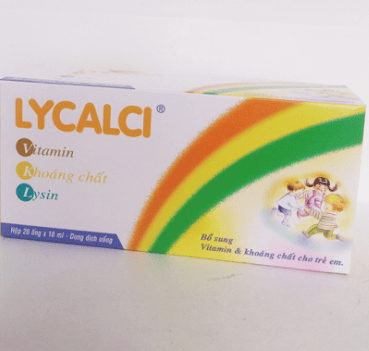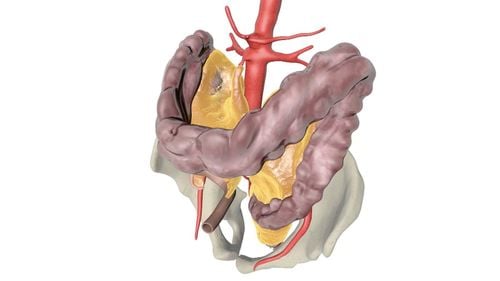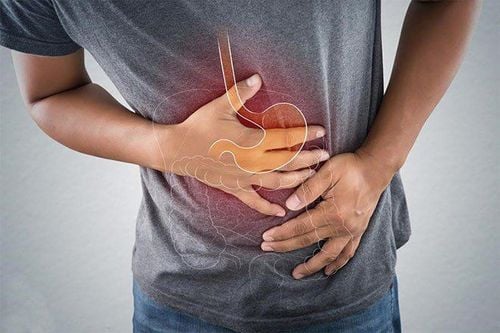This is an automatically translated article.
The underdeveloped digestive system of the baby will have a significant impact on the health situation. Therefore, in order for children to develop comprehensively, parents need to pay attention to and learn about the child's digestive system, thereby having appropriate care and nutrition.
1. Signs of poor baby's digestive system
Poor digestive system condition is when the baby does not absorb the nutrients in the daily diet comprehensively. Specifically, the food that the baby puts into the body may be full of all kinds of nutrients, but the baby's body always falls into a state of nutritional deficiencies, leading to weakened health and susceptibility to diseases. errands.
The process of digesting food helps metabolize and provide nutrients to nourish cells in the body. These nutrients are absorbed by the small intestine from food, then transported to the blood, muscles, other tissues and organs to build, grow, and maintain a healthy body. The poor digestive system of babies makes it impossible for the baby to absorb the nutrients needed for the body's development.
Most nutrients can be absorbed easily through many mechanical actions in the oral cavity (such as biting, chewing, crushing food) and chemical transformation reactions (such as enzymatic hydrolysis). in the stomach, pancreas, secrete bile to the small intestine). Sometimes, nutrients that are difficult to absorb such as lipids and proteins will lead to a situation where the body cannot absorb all the nutrients from the food that is introduced. In addition, the baby's poor digestive system is also a factor leading to the ineffective consumption of food.
2. The cause of the baby's poor digestive system
Poor digestive system status of children is one of the common problems that every parent worries about. The causes of poor digestion in children and infants often stem from:
The child's digestive system is not yet complete: The ability to function of the system of organs, cells, muscles, digestive tissues in Young children are not fully developed and cannot function to their full capacity as adults. Therefore, children's ability to absorb food often faces many difficulties. Unhygienic diet: If your baby regularly eats unhygienic foods (such as undercooked foods, street snacks, foods of unknown origin,... ), the baby's digestive system will be affected. Failure to ensure food hygiene and safety will cause abdominal pain, diarrhea, intestinal infections, gastrointestinal infections, etc., leading to poor digestion. Children eat foods that are incompatible: Sometimes the dishes have a very rich and quality nutrient content, but when they combine them together in a meal, there is a risk of similarity. incompatible, making the digestive system unable to absorb. Some common food pairs that interact with each other are: garlic and carp, crab and honey.

Một số loại thực phẩm có thể làm hệ tiêu hóa của bé kém đi
Effects of treatment for digestive conditions: Some medicines for children's diseases can affect the digestive system, especially when treating diseases related to the digestive system. In addition, abstinence too closely or improperly during treatment also adversely affects the absorption of nutrients by the baby. Eating in moderation: Children often skip meals, anorexia, eat too much food at once or eat too many dishes containing only a certain type of nutrition are considered common causes of their digestive system baby is less. All of the above cases have the risk of causing damage to the organs in the digestive system, inflammation, reduced performance, ... directly affecting the absorption of food by children.
3. How to make the baby's digestive system work best?
To take care of and maintain the best functioning of the child's digestive system, please refer to some of the tips below.
3.1. Choosing the right time to introduce solid foods for children Early introduction of solid foods to babies is often not good for the stomach of young children because at this time, the child's digestive system is not really complete. In general, the baby's stomach will not be able to immediately absorb substances such as proteins or lipids.
If the baby eats solids early, the digestive system will become more sensitive, leading to the risk of bloating, indigestion, even digestive disorders. This will adversely affect the normal development of the child.
3.2. In general, in order for the digestive system of children to be developed and perfected, parents should give priority to choosing clean and hygienic foods. It is best for children to eat cooked food and drink boiling water to limit digestive disorders and diarrhea. In addition, to limit children's constipation, parents should add more foods containing fiber to their children's daily meals. Most children do not like to eat green vegetables, so try to prepare and decorate the food in an attractive and eye-catching way to keep the baby interested. In addition, parents should divide meals with just enough food to reduce the pressure on the digestive system and let the baby drink a lot of water.

Cha mẹ nên lựa chọn thực phẩm sạch phù hợp với hệ tiêu hóa của bé kém
Normally, a child's digestive system is quite sensitive, so parents need to pay attention and take proper care of the baby to limit the condition of the baby's underdeveloped digestive system. If you notice that the child has problems related to the digestive system, parents should carefully monitor the child and take the child to a medical facility for diagnosis and treatment.
In addition to proper care, appropriate food selection,... your baby should also be supplemented with necessary micronutrients such as: Zinc, selenium, chromium, Vitamins B1 and B6, Ginger, cherries extract ri (vitamin C),... to improve taste, eat well, reach the correct height and weight, and exceed standards, have a good immune system, enhance resistance to less sickness and problems Digest.
To have more knowledge about taking care of children according to age, please visit the website (vinmec.com) regularly and make an appointment with the leading doctors, Pediatricians - Nutrition experts when you need advice.













